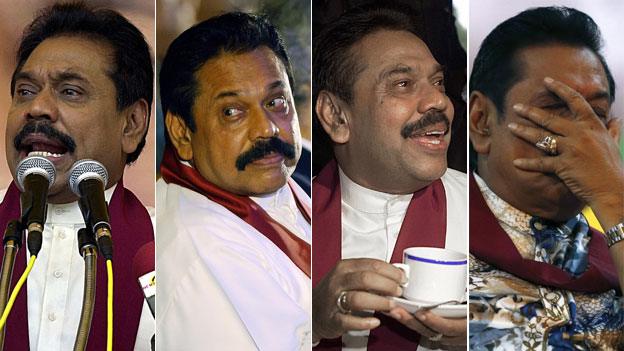Sri Lanka shift on civil war anniversary
- Published
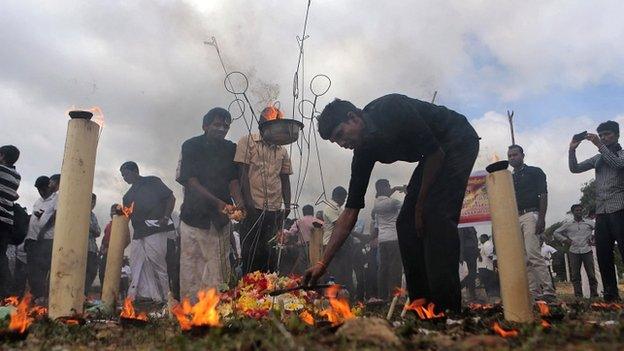
Tamils - seen here at the site of the final battle - were not allowed to commemorate their dead until now
Sri Lanka's president has promised to seek reconciliation on the sixth anniversary of the army's victory over Tamil Tiger separatists.
Maithripala Sirisena said the truth of what happened in the conflict needed to be established and justice delivered.
On Monday for the first time Tamil politicians in the former war zone in the north and east were allowed to hold a memorial event for dead civilians.
However, police surveillance was high. Other demonstrations were banned.
"We were all happy when the war ended. But can we be happy with the developments post-war?" Mr Sirisena said during commemorations on Tuesday.
"We were not able to win hearts and minds of people. The true reconciliation could only be achieved by winning hearts and minds."
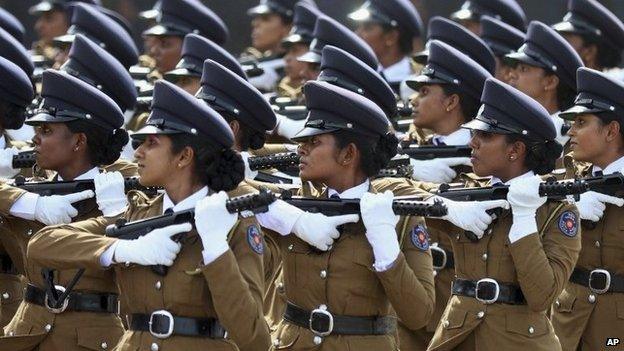
Victory Day has now become Remembrance Day in Sri Lanka
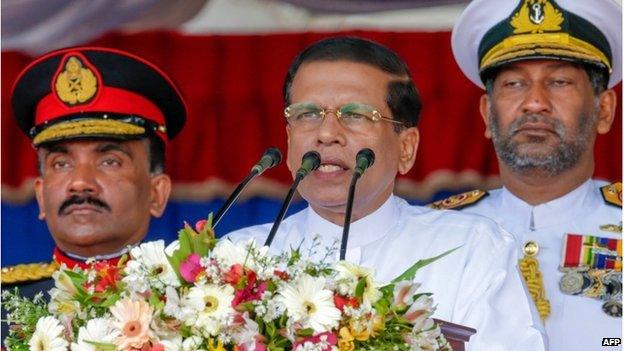
Mr Sirisena says he wants reconciliation, but rights campaigners remain to be convinced
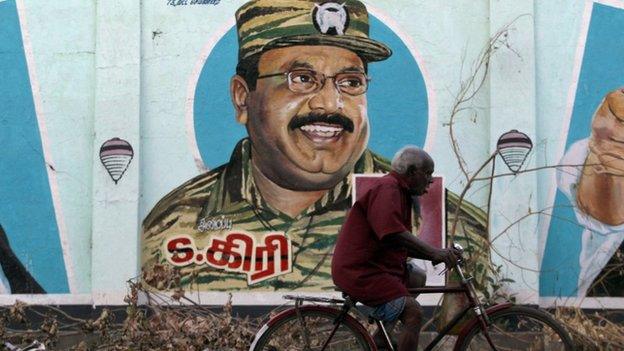
In Chennai, capital of India's Tamil Nadu state, Tiger leader Prabhakaran is still depicted on murals
In a statement issued on Sunday, Human Rights Watch expressed doubts about the new administration's commitment to address the allegations of human rights abuses and war crimes during the last stages of the civil war.
Mr Sirisena's remarks, however, are another sign of a changed emphasis since his unexpected election victory over the more nationalistic former president, Mahinda Rajapaksa, in January, reports the BBC's Charles Haviland.
Our correspondent says Mr Sirisena appears to be acknowledging that more remains to be discovered about how many Tamil civilians died or disappeared in murky circumstances - and about whether Tamil Tiger leaders were killed after surrendering.
There are also many more unsolved rights issues dating back decades.
For the past five years, the war's end was celebrated as "Victory Day" by the Rajapaksa government, but the new administration has said it will be observed as "Remembrance Day" to mark the sacrifices made by all those died, irrespective of their ethnicity, reports BBC Sinhala's Azzam Ameen.
Monday's memorial event by Tamil politicians was another notable change.
The ceremony was conducted on the beach of Mullivaayikkal in Mulaithivu district where the final battle took place. The ceremony was attended by the Chief Minister of the Northern Province CV Vignaswaran and many other members of the provincial council.
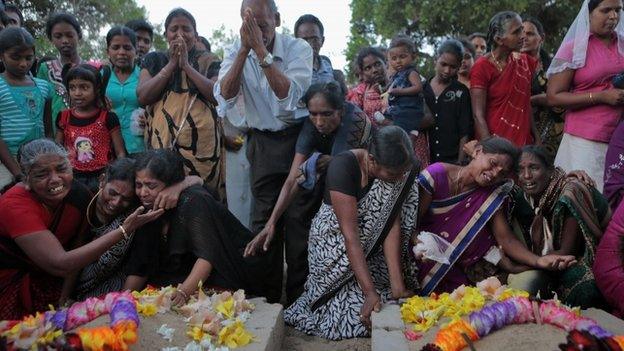
The ceremony in the north-east was the first of its kind in six years

Analysis: Priyath Liyanage, BBC News
Since 30 years of civil war ended in May 2009, annual victory day military parades in Sri Lanka have been held with tanks and artillery, while fighter jets fly overhead.
In contrast, the Tamil community in the north and east was prevented from any attempts at public memorials. Political party offices and media institutions were surrounded by government troops and roads to some Hindu religious shrines closed in order to deny any attempts at commemoration.
But this year, things were different.
Monday's ceremony at Mullivaayikkal was part of Remembrance Week, which began on 12 May. Several religious events were held throughout the north and east to commemorate the civilian lives lost.

According to UN estimates, between 80,000 and 100,000 people were killed in the conflict. Some reports have suggested about 40,000 Tamil civilians may have been killed in the final few weeks.
Peace campaigners have repeatedly warned against major victory celebrations that could further alienate the country's communities.
Mr Rajapaksa and his supporters commemorated the war anniversary separately on Monday and blamed the new government for not celebrating it as a victory.
- Published12 March 2015
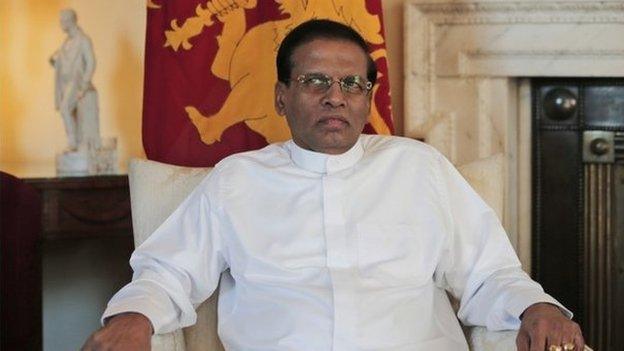
- Published14 August 2015
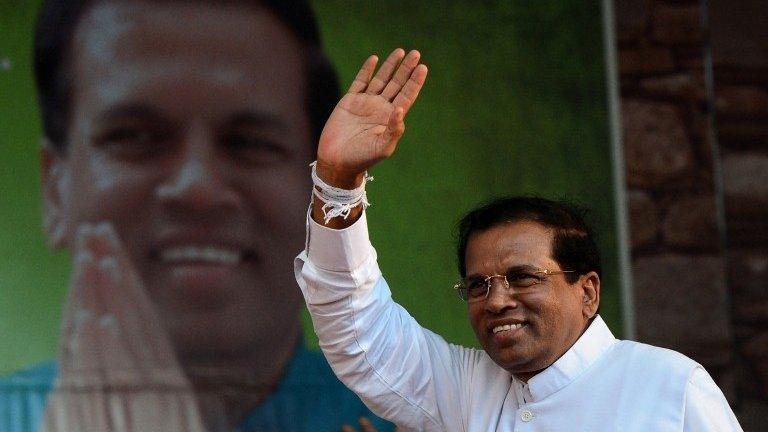
- Published9 January 2015
